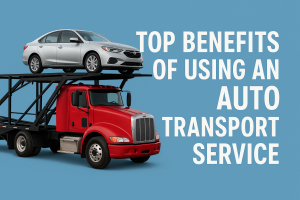ABuying a used car needn’t mean getting second best. Read our guide to making a smarter decision on your next pre-owned vehicle.
Key Takeaways:
- Used cars are more readily available than ever, but a wider pool of choices puts greater responsibility on the buyer
- Paperwork and vehicle history are crucial to an informed decision
- Use every tip on our list in combination wherever possible
- Working with an auto transport broker can protect your purchase and get it home safely
The American used car market is in a very healthy state having grown by 4.7% this year alone for an overall value of more than $160 billion. Whether or not the used vehicle you choose to buy is equally robust is a different story. The huge selection doesn’t make selecting one easier since it also increases the odds of buying a car with significant problems.
There’s still a lot that prospective buyers can do to improve their chances of finding a peach over a lemon. Also, there’s a lot more to consider than merely how good a vehicle looks. This guide will highlight the common pitfalls to avoid. Additionally, it’ll stress how important choosing the right auto transport carrier can be if you’re buying a used car from out of state.
1. Failing at financing
Purchasing a used car is often driven by financial necessity. It’s thus vital to cap how much you’re willing to pay. Therefore, choose carefully between outside funding from banks, credit unions, or dealerships. Each has pros and cons.
For example, financing from a bank you’re already a customer with can be easier and more affordable if they know you’re a sound prospect. This could lead to better rates. A bank’s interest rates can also be significantly over the national average. Therefore, sign up with caution – seemingly affordable monthly payments can amount to a real financial burden in the long run.
Dealer financing is often a big help for those with bad credit history. They’ll likely have a list of lenders willing to take on even risky financial prospects, making it easier (at least initially) to buy a used car. Interest rates are typically high since that’s where dealers make their money and used cars can quickly be repossessed when a buyer defaults on payments.
Credit unions offer a “human touch” since the buyer is a member and not just a customer. Unions usually offer lower interest rates than bigger financial organizations. However, not all of them are insured, which could make financing through one a risky venture. The takeaways in every case are to use a car loan calculator and shop around.
2. Neglecting the test drive
A test drive may seem like common sense, and yet, not every buyer does it. Being too trusting, polite, or in too much of a hurry can mean missing vehicle issues that signal deeper mechanical problems. It’s imperative to experience first-hand how a second- (or even third- or fourth-) hand vehicle handles, how it sounds, and even how it smells, before committing to buy.
3. Forgetting the mechanic
Test drives can tell you a lot but rarely reveal the whole picture. Skipping a mechanic’s check-up of a used car only saves money in the short term. Their expertise can prevent future financial headaches. Therefore, always consult one whenever their services aren’t part of your dealer’s used purchase package.
Buying second-hand from a private owner usually comes with assurances that the vehicle is in good condition and was handled responsibly. Sneaky sellers know that any problems found in the shop could lend the buyer some negotiating leverage. See how amenable sellers are to accommodating requests for a mechanic’s opinion. Additionally, use that as a green or red flag to proceed.
4. Not being comprehensive with the paperwork
Tracking down the paperwork that comes with a new car can be a challenge when you buy a used car. Start by checking the vehicle’s title. This proves the seller is the owner and is essential when registering the car as yours with the DMV. The title document sometimes reveals other potential deal-breakers. Furthermore, like any past damage to the car, accident, purchase history, existing liens, and odometer accuracy.
A buyer who uses financing may not have access to the property until all payments have been made. Do not rely on the seller’s word alone when researching an automobile. Also, consider anything that is not in the title. When purchasing a used vehicle, you should review the vehicle’s history report and any maintenance documents provided by the seller.
Sometimes a history report is part of the package while it’s up to the buyer at others. Sources like VinAudit, AutoCheck, CARFAX, and the NMVTIS cost little to nothing. Use historical information to cross-reference seller documents and stories to avoid making a poor decision.
Keep in mind that history reports aren’t infallible. Incidents can take a long time to show up in such records and that’s if they’re reported by the previous owner(s). Use your best first-hand and mechanic-backed judgment in combination with the historical record.
5. Not using an auto shipper for long-distance buys
It’s possible for buyers to be shown only photos and videos of a car that’s bought from out of state. This puts them at something of a disadvantage, which can be compounded by foregoing auto transport services. Picking the car up by yourself may seem cheaper yet be more trouble than it’s worth.
It only takes 50 miles for a journey to qualify as long-distance – and it brings with it all the associated risks and costs like secondary transport to get to the seller, gas, tolls, on-road damage, and a heightened potential for accidents. It may be illegal to drive a car in another state unless you are identified as the current owner.
Choosing an auto carrier can protect you and your new purchase from unnecessary harm when you buy a used car. There are three principal carrier options available and two pick-up methods each with its pros and cons, so weigh each one carefully to optimize your purchase experience and minimize risks.
Speak to the auto transportation professionals with any questions
Mercury Auto Transport is here to connect customers with carriers for the most cost-effective shipping service possible. Our carefully vetted roster of auto carriers is ready for your review, so call us toll-free at 800-553-1828 or email info@mercuryautotransport.com for more information.






